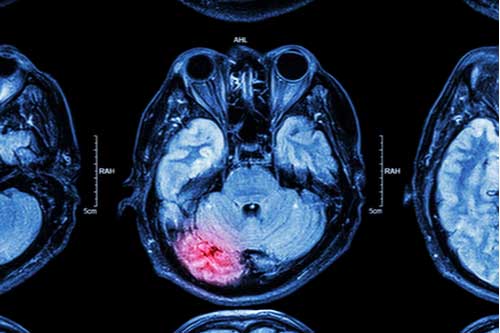Long-Term Impacts of Traumatic Brain Injury
Traumatic brain injuries (TBI) can lead to a variety of long-lasting effects. Understanding these impacts is crucial for individuals and families dealing with the aftermath of such injuries. The consequences can extend beyond physical symptoms, affecting cognitive abilities, emotional health, and overall quality of life.
Physical Impacts

The physical effects of TBI can be significant and varied. Many individuals experience persistent headaches, fatigue, and dizziness. Others may face challenges with coordination and balance, leading to an increased risk of falls. Some may also suffer from seizures or other neurological issues. These physical impairments can hinder daily activities, making it difficult for individuals to return to work or engage in recreational activities.
Cognitive and Behavioral Impacts
Cognitive effects can be profound as well. Individuals may struggle with memory, attention, and problem-solving skills. These cognitive impairments can lead to frustration and anxiety, impacting relationships with family and friends. Behavioral changes, such as increased irritability, mood swings, or depression, are also common. Understanding these changes is vital for caregivers and loved ones, as they can affect interactions and support systems.
Quality of Life and Functional Impacts

The overall quality of life for those with TBI can decline significantly. Many individuals report feelings of isolation or loss of independence. Everyday tasks, such as cooking or driving, may become challenging or impossible. This shift can lead to emotional distress and a sense of helplessness. Families must adapt to these changes, often taking on caregiving roles that require additional support and resources.
Long-Term Care and Support
Long-term care for individuals with TBI can be complex and demanding. Ongoing medical treatment may be necessary, including physical therapy, occupational therapy, and counseling. Families should explore available resources, such as rehabilitation programs and support groups, to help manage the challenges of caregiving. Financial support may also be crucial, as medical expenses and lost wages can accumulate over time. Seeking guidance from a brain injury attorney can help navigate these issues and ensure that affected individuals receive the compensation they need for long-term care.
Legal Considerations

Navigating the aftermath of a traumatic brain injury (TBI) involves understanding the legal landscape surrounding compensation and claims. This section will outline key aspects of TBI legal considerations, helping victims and their families make informed decisions.
Compensation and Claims
When pursuing a TBI claim, understanding the types of compensation available is crucial. Victims may seek compensation for:
- Medical expenses: This includes costs for emergency care, ongoing treatment, and rehabilitation.
- Lost wages: If the injury affects the ability to work, compensation can cover lost income.
- Pain and suffering: This refers to the emotional and physical distress caused by the injury.
- Long-term care: In cases of severe TBI, ongoing care and support may be necessary, leading to significant expenses.
Filing a claim requires gathering evidence, such as medical records and accident reports. Having an experienced brain injury attorney can help ensure that all necessary documentation is in place to support your claim.
Legal Implications and Rights
Understanding your rights following a TBI is essential. In many jurisdictions, victims have the right to pursue legal action against those responsible for their injury. This can include drivers in car accidents, employers in workplace incidents, or product manufacturers in cases of defective equipment.
It’s important to be aware of the statute of limitations, which dictates the time frame within which a claim must be filed. Failing to act within this period can result in losing the right to seek compensation.
Expert Legal Help
Engaging with a skilled personal injury lawyer specializing in TBI cases is vital. An expert can navigate the legal system, ensuring that your rights are protected and that you receive the compensation you deserve. They can also help you understand the nuances of your case, including potential defenses from the opposing party and how to counter them.
Settlements and Negotiations
Most TBI cases are resolved through settlements rather than going to trial. Effective negotiation skills are essential for securing fair compensation. An experienced attorney will advocate on your behalf, presenting evidence and making a strong case for the compensation needed to cover medical expenses, lost wages, and other damages.
It’s important to approach settlements with caution. Accepting an initial offer from insurance companies may seem appealing, but these offers often fall short of covering long-term needs. A thorough assessment of your situation will help determine whether a settlement is in your best interest.



